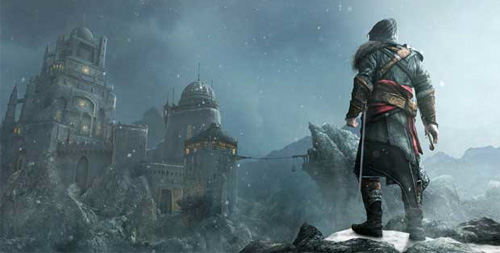At the risk of sounding like a broken record, or worse, terribly cliche – I want to take a moment and gripe about sequel-itis in video games. No, I’m not against sequels. And yes, I understand that in a time where AAA games cost big bucks to develop, publishers want to go with surefire hits instead of taking chances on new IPs. All of that’s fine. But what I can’t forgive is when this sequel-itis starts affecting stories negatively.
Take Assassin’s Creed: Revelations, for instance. I’m sure all of you will think I hate this game after posting a couple of negative critiques about it, but it’s more that Revelations’ negatives shine so outrageously because the game itself plays so well – and in some ways is a perfection of the Assassin’s Creed formula. I’m going to have to be as spoiler careful as possible here, but AC: Brotherhood ended with a bit of a cliffhanger. OK, that’s an understatement – it ended on a double scoop of cliffhanger with a major sprinkle of WTF. Part of the lure of Revelations is that it was supposed to give you some of the answers about both Desmond and Ezio that were left hanging at the end of Brotherhood.
The problem is, Revelations ends in much the same way. The cliffhanger isn’t so bad compared to Brotherhood, but the “answers” they finally give you only lead to a dizzying array of questions. No explanation is given for some of the really bizarre things you see in the climax of this game, after the entire narrative kept assuring you that the time for answers was coming soon.
To be clear, I don’t have a problem with mystery, or leaving an audience hanging. What I have a problem with is a structure that is so clearly set up to deliver sequel after sequel, rather than stories that can exist on their own and have their own merit. It’s the same reason that everyone went nuts after Halo 2 but can prop up Uncharted 2 as a shining example of how to make a single player campaign. Each game in the Uncharted series has been its own story, without the need to give us a “gotcha” moment at the end in hopes to string us back for more. Gears of War, for all of its story issues, succeeds at this as well.
So please, video game developers. For the love of all things holy – make your games as experiences that are unique to themselves. It’s OK to leave a few threads unanswered, but don’t string us along only to throw a bunch of nonsense to us in the final moments. I’m still a fan of Assassin’s Creed and think that Revelations offered some fantastic gameplay, but the endings for the last couple of entries left me feeling unsatisfied, rather than eager to play more. And that’s where you start to run into problems with sequel-itis.
What do you guys think? Are there other examples of this done well, or poorly? Who here has finished Revelations? Go!


I love the Assassin’s Creed series, but I have not even picked up Revelations yet, and to be honest, I’m not really thrilled to either. It’s not the reviews or what people say about it (because there’s still plenty of positive stuff), it’s because I don’t really have the interest. AC: 1 was amazing and it left me wanting AC: 2, which was even more brilliant and made me eager to see what was next. Brotherhood was very enjoyable, even though I felt it lacked in direction and a proper goal, but it wasn’t a good as AC: 2, and it’s ending was such a WTF moment, but I still wanted to see what was next. I was looking forward to the release of Revelations, but I kind of forgot about it and haven’t bothered getting it yet. I’m sure I’ll enjoy Revelations when I get around to playing it, but that may still be some time from now.
Hoping to wrap up Revelations tonight or tomorrow night, and this is exactly what I didn’t want to hear. I certainly expected a huge hole to be left for the next sequel to fill, but I suspect from this that there may be significantly less resolution to this chapter than I had hoped.